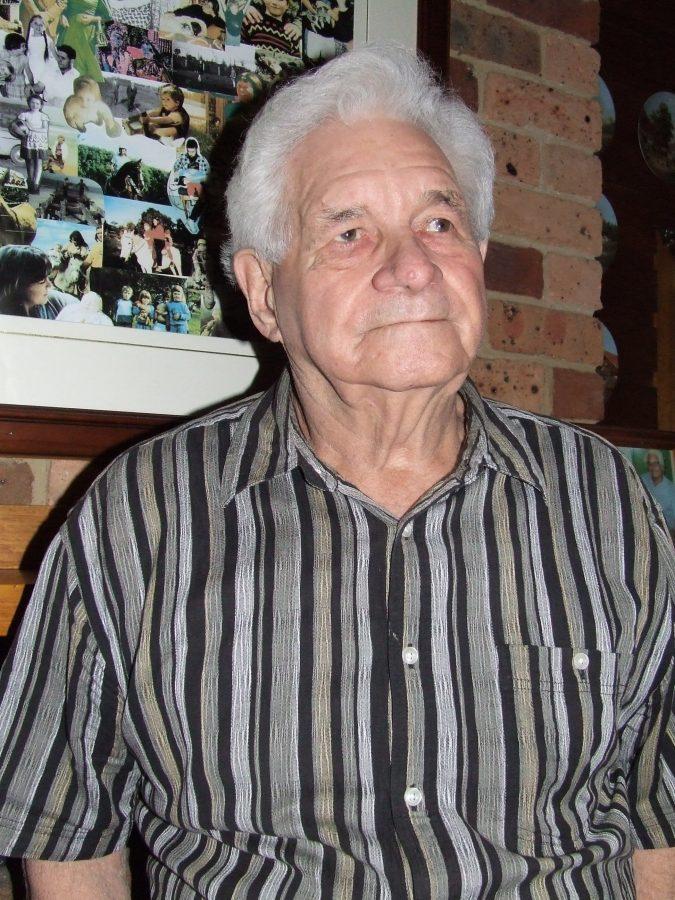Erwin Feeken is not your average adventurer. He has followed explorers’ routes with his family, worked in the field as a geologist and cartographer and continues to encourage his children and grandchildren to explore. But Feeken did something that many adventurers have not: he moved from one side of the world to the other. Feeken was born in Oldenburg, Germany in 1930 and moved to the continent of Australia in 1954. The desire to expand his horizons was so gripping that he had to take the chance and go. Feeken details his story of a life filled with love and incredible adventures in a recently published book called, “My Adopted Country: Australia.” Feeken was kind enough to answer a few questions about his journey and the lessons he has learned.
Q: What was Germany like when you left, and how did you decide to leave?
A: After 1949, lifestyle in Germany was almost back to normal. By 1954, the year of my (our) departure, I had a good government position, and if I had had the inclination to succeed in my profession, I would have had the opportunity. However, my mind was set on adventure/exploration. I was not suited to a normal, quiet, German lifestyle.
I was prepared to make any sacrifice to leave Germany, i.e. any job away from Germany would have done to begin with. However, in the end I wanted to achieve ‘something.’
Q: Why Australia?
A: Australia offered the first opportunity and we took it. It was one of my favorite destinations, but Argentina or Canada would have been OK. I preferred a country that still had frontiers.
Q: What has been one of your favorite adventures that you’ve experienced with your family? Why?
A: The whole family love ‘wide open spaces’ with an ‘unknown’ factor. The fact that my main employer was the Bureau of Mineral Resources which involved me in field work was very convenient. But the fact that we discovered and studied original explorers’ journals and that almost no work had been done to exploit explorers’ information, gave us a real purpose in traveling, i.e. to check out explorers’ routes and their discoveries. It was to occupy me one way or another to this day.
Q: What’s something you learned about yourself by going to Australia?
A: I learned from Australia that multiculturalism can work, whereas in Germany, at least until I had left, people were mostly intolerant towards other cultures. I found the freedom in every way that I was looking for.
Q: If you could give any advice to college students / young people, what would it be?
A: A difficult question! College students are already old enough to have shaped their characters. For those who are still adaptable I suggest they keep an open mind to those who offer differing ideas and differing lifestyles and those who look different.
I believe advice and guidance begins at a very young age, through parents. If parents haven’t got the capacity or inclination to teach their children, and have failed, then there is little hope of influencing young adults.
Q: What do you hope people take away from your book?
A: That life can be interesting! Follow your inclinations, in my case exploring / traveling. Besides working for a living, there have to be other interests, be it sport, music etc. I was unhappy in my situation in Germany, so I made efforts to change that.
Q: If you could do it all again, what would you do differently?
A: There is not much I could have done differently. Most of my life’s ambitions have been fulfilled. I should not have ceased writing after our 1970 book on exploration, until recent years, when this book, “My Adopted Country: Australia,” came about. After all, I did have material to write about.
Q: What’s the best way to make sure that you explore your whole life?
A: I wrote traveling notes, and kept annotated photo albums, as well as diaries since 1960. From the diaries I compiled “The Feeken Family’s Chronology of Events in Australia”. Besides, my memory of past events is still quite good.
For more information on Feeken or his book, visit http://erwinfeeken.com.









